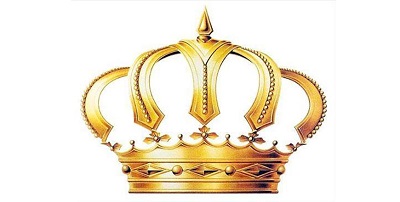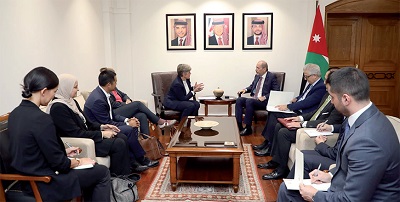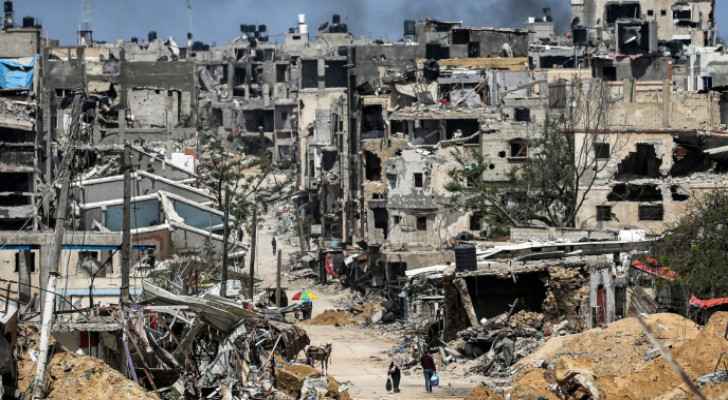Why is Russia propping up Sudan’s Bashir? - By Dr. Azeem Ibrahim, Alarabiya
Omar al-Bashir’s regime in Khartoum has been looking increasingly fragile since popular protests erupted toward the end of last year against the dire and deteriorating economic conditions in the country.
This is not merely an eruption of discontent against the state like the “yellow vests” in France. The protesters represent a wide and diverse cross-section of the population, which includes former government officials. This movement is capable to take over the running of the country. This is now a budding revolution.
That said, more recent developments will allow Bashir to rest a little easier at night. The Kremlin entered the fray to support the incumbent regime. Media reports suggested that Russian-speaking mercenaries, likely the Wagner Group or similar, have been helping the Sudanese authorities crack down on street protests.
But why is Putin so keen to get involved in what is shaping up to be another civil war? It seems likely that on this occasion, the Kremlin would rather see this conflict resolved quickly.
Russia is already dangerously overextended, and Putin must know this. So perhaps the calculation was that swift intervention through deniable assets, such as the Kremlin’s pet mercenary groups, would be enough to consolidate the regime’s hold on power in Khartoum.
On the upside, if this gambit succeeds, Putin re-establishes Russia as a player in African affairs. This is not mere Soviet-era nostalgia over Russia regaining the position of global power, rather than being a “regional player” as the Americans mocked them in the past.
There is an ongoing second “Scramble for Africa” to secure food and mineral resources. And even though Russia does have an abundance of both of those, increasing its control over the continent will allow the Kremlin to put pressure on the access to these supplies for the West and China, greatly increasing its geopolitical leverage.
And perhaps the most remarkable aspect of this entanglement is how little risk it presupposes for the Kremlin. Because the mercenary groups are supposedly independent actors, even if their intervention fails to rescue the Bashir regime that failure will not be attached to Mr Putin – at least not in the eyes of the Russian populace.
Such a failure will put a dent into Russia’s ambitions to extend their influence into Africa, but it would not damage their already-established position in the region. And upholding another war criminal is hardly going to damage Russia’s international reputation at this point.
Conversely, many of Africa’s other problematic regimes will be looking with interest toward Moscow if the operation succeeds. As icing on the cake, there may be financial benefits for the Kremlin for backing vulnerable kleptocratic regimes across the continent, at a time when they are in rather dire financial straits.
A mutually-beneficial protection racket would be a sensible strategy for Russia to pursue on the continent – at least so long as the Kremlin can keep away from overt political commitments to any of these regimes, like the commitments they have to the Haftar faction of the Libyan civil war. Moscow can ill-afford becoming a declared belligerent in any more civil wars.
For his part, Bashir has little choice but to take any help he can get. Unpopular at home and sought by the ICC for war crimes and genocide for his conduct during South Sudan’s wars of secession, he does not have anywhere to go.
If he loses power, he is finished. This makes him just the kind of dependent client the Kremlin loves. For Russia, this is a no-brainer.
Latest News
 King orders holding parliamentary elections in accordance with law, checks on electoral commission’s preparations
King orders holding parliamentary elections in accordance with law, checks on electoral commission’s preparations- N. Macedonia starts elections that could decide stalled EU talks
 US Senate passes bill for aid to Israeli Occupation, Ukraine, Taiwan
US Senate passes bill for aid to Israeli Occupation, Ukraine, Taiwan Safadi discusses support to Syrian refugee with DRC
Safadi discusses support to Syrian refugee with DRC Israeli Occupation aggression on Gaza enters 200th day
Israeli Occupation aggression on Gaza enters 200th day
Most Read Articles
- Palestinian prime minister, Jordanian ambassador discuss humanitarian efforts in Palestine
- US president signs bill to provide new aid for Ukraine
- Prime minister directs government to support IEC ahead of upcoming elections
- Iran cuts Syria presence after strikes blamed on Israel —monitor
- US Supreme Court seems split on Idaho abortion ban
- Four dead as floods wreak havoc in Kenyan capital
- UAE announces $544m for repairs after record rains
- Vaccines saved at least 154 million lives in 50 years — WHO
- Germany nudges up growth forecast, ailing economy at 'turning point'
- Israel pummels Gaza after US Congress approves military aid